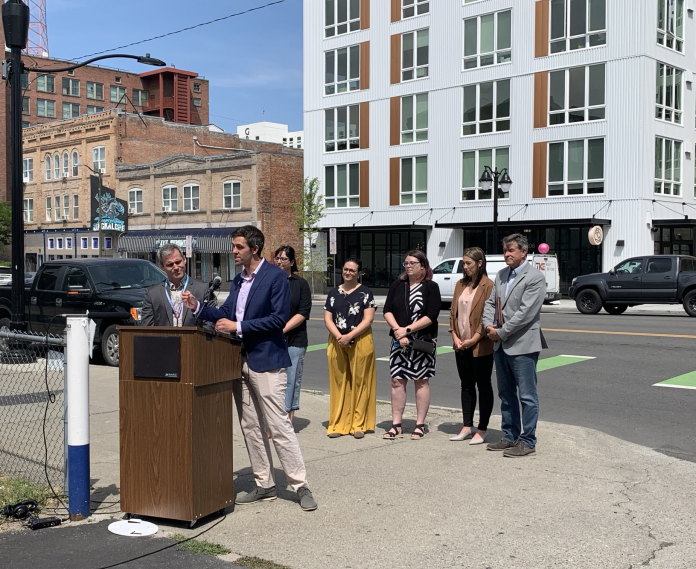
One year ago, Spokane shocked the state by passing a sweeping housing reform bill that, among other things, reduced minimum lot sizes and legalized fourplexes anywhere you can build a single-family home.
Passed unanimously by a Spokane City Council seen as split 5-2 between progressives and conservatives, the reform arguably catalyzed the passage of HB 1110, which takes fourplexes statewide. It also used a novel implementation approach which backloaded required public outreach after the reform was already in place, which proved that some opponents’ fears of rapid neighborhood change were wildly exaggerated.
Now, Spokane is poised to do it again.
On Monday night Spokane City Council will take up an interim zoning ordinance which would continue the city’s housing leadership by making off-street parking optional for all housing use within a 1/2-mile of a transit stop and allowing “unbundled” parking (essentially, a discount on rent for tenants who do not need parking). By July of 2024, the Council would adopt new permanent parking regulations to replace this interim rule.
Just to give a sense of scale, here (in green) are the areas in the city where off-street parking would be optional:
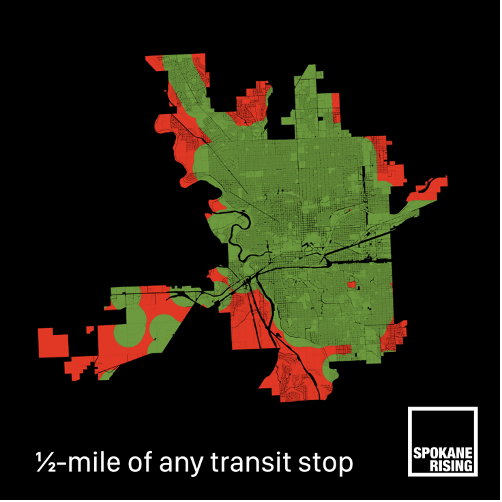
If passed, off-street parking would be optional for housing across most of the city, except in areas on the suburban fringe in places like the Latah Valley and North Indian Trail, where there’s little transit and a sprawled out development pattern centered around driving anyway.
In some ways, this goes further than Seattle has gone; there, off-street parking is generally required except within a 1/4-mile of frequent transit or in an urban center. Here’s how the map might look if Spokane were to use an alternative radius in its legislation:
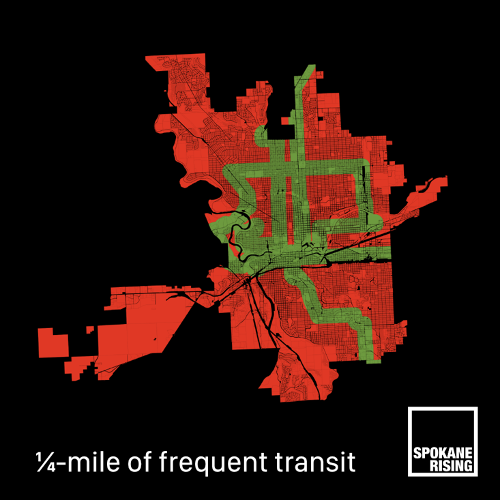
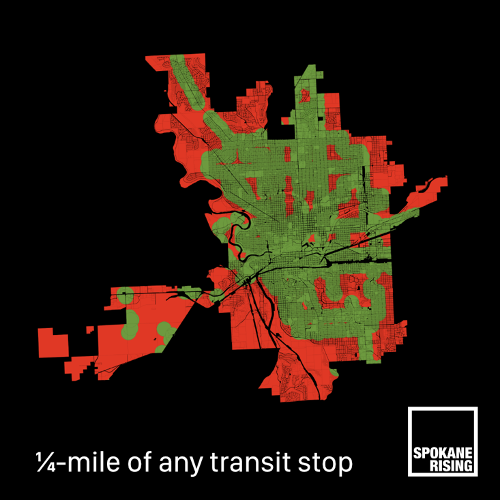
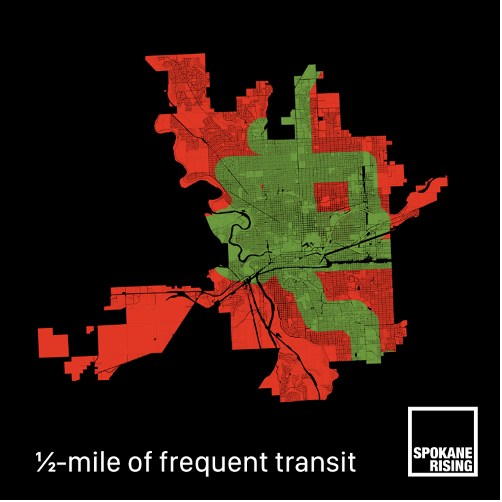
This interim zoning ordinance is being championed by progressive Councilmember Zack Zappone with support from conservative Councilmember Jon Bingle, in another show of housing reform’s cross-ideological appeal. And the “why” is clear:
Most critically, off-street parking makes housing much more expensive. And it’s not hard to see why — a single surface parking stall can cost $20,000 to $40,000, and an underground or structured stall can easily reach $100,000. That’s a massive expense for new housing — even dedicated affordable or social housing — that just gets passed on to the renters or buyers in the building. A recent study found that 60-70% of all homes built in Seattle and Buffalo, New York in recent years would not have been built without those cities’ parking flexibility.
And perhaps, appealingly, for the libertarian-minded, optional parking gives property owners a choice. If off-street parking would be necessary to rent or sell a unit, then the market will respond and that off-street parking will still be provided. But say, for example, an individual property owner wants to build a new home but doesn’t own a car or want to own one. Previously they would have been required by the city to construct a parking stall even if they didn’t even own a car. Even worse, it is illegal for landlords to charge renters less if they don’t have a car. This optional parking ordinance remedies that injustice.
Like its major housing reform passed last year through the Building Opportunity and Choices for All ordinance, Spokane has an opportunity with this legislation to lead the state. HB 1351, which would have made parking optional within 1/4-mile of transit in every city and town in the state, unfortunately failed to pass this legislative session despite strong support from advocates. That leaves Washington as the only state on the West Coast still requiring parking near transit. Spokane could finally catalyze action in Olympia on this issue. Even better — it could spur cities across the state to think even bigger, perhaps by exploring parking maximums, or by abolishing parking requirements for commercial uses, which have similarly perverse effects.
Spokane City Council has now established itself as a statewide and national housing justice leader. It’s long past time to take these reforms statewide.
Take action: City Council takes up this ordinance at its regular meeting on Monday, July 17. Interested community members sign up to offer live public comment in-person at Spokane City Hall or virtually via WebEx, or can send an email in advance.
Anthony Gill is an economic development professional and writer at Spokane Rising, an urbanist blog focused on ways to make Spokane a better place to live.

